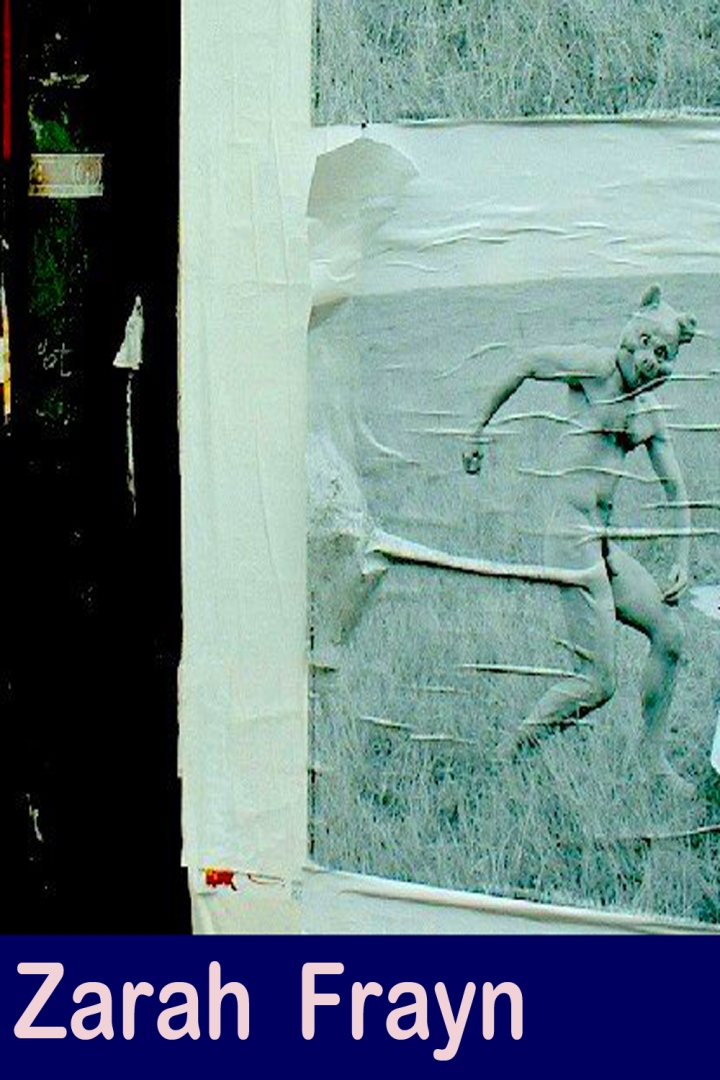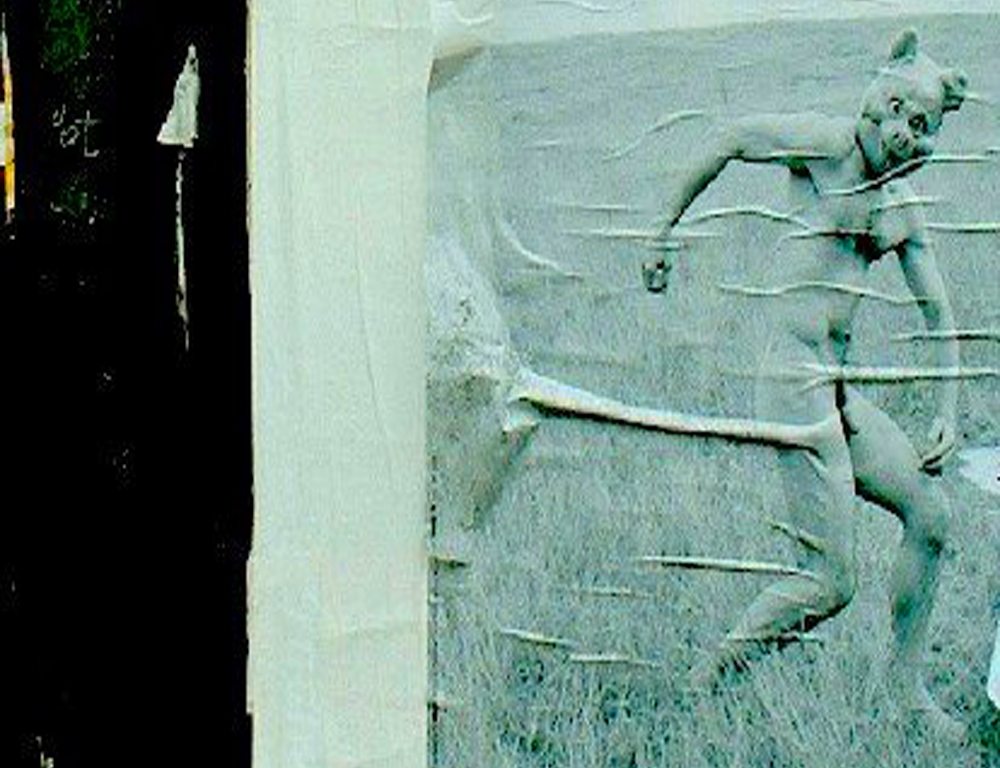
If you asked Zarah Frayn about the scariest thing that had ever happened to her she could tell you without thinking but wouldn’t. It had happened the month after marrying Blake. She hadn’t thought of it in all these years. As though the divorce had suddenly opened her to thoughts like that again, or to people who would ask that kind of question. It’s true she wouldn’t have thought of it otherwise. Not now. If it was a flirtation it was a funny way to flirt, she thought. Was he trying to scare her? His English was weakly accented, but she didn’t think he was foreign. He’d just been here too long.
She saw the answer to his question without answering it. It’s amazing how many thoughts you can have while putting a glass to your lips. How many pictures you can see. She had been married to Blake for a month, living happily in the rented house in Minneapolis, near the lake.
In the summer you could hear the people on the sailboats talking loudly over music through the screen door to the back porch that Blake had converted into what he’d called his study. Studying what? Two sides of the porch were weird old windows with busted cranks they hadn’t found screens for in the cellar or attic or in the garage and they hadn’t had the time or money to get new ones from the hardware store. You could only angle the windows slightly open and the problem was that mosquitoes came in. When it was stormy you couldn’t open the porch windows at all because the wind pushed them all open, inwards, leaving the porch entirely naked to the elements, leaves and twigs and everything else all over the rough wood of the floor.
Being newlyweds was their excuse, at first, for not getting screens but they still didn’t have time or much money, eleven years later, when they finally called it quits. It could get pretty hot on the porch but the air conditioning from the kitchen helped to keep it pleasant during the day, with the shade from all the trees an additional help. They usually wouldn’t use the air conditioning in the evening, which is when you could sometimes hear the people on the sailboats drifting by on the dark lake chatting around their mild and orderly music. If the music was jazz, which it was sometimes, it reminded her to wonder why Blake refused to listen to jazz while they were having sex.
She was on the couch on the porch, not really reclining and not really sitting up, with a magazine, it must have been a Vogue, the bare bulb in the slanted ceiling of the porch kind of hurting her eyes. Sometimes it hurt her eyes and sometimes it didn’t. It depended on where she sat in relation to the bulb but she felt too lazy, she remembers, to get up and simply cross the porch to the overstuffed chair in the corner that it was better for her eyes, in the evening, to read in. Also, the chair smelled slightly old. She looked up from the magazine at the chair, several times, as though to go to it by thought alone or as if someone was sitting in it. She looked up at least half a dozen times while flipping the pages of the Vogue.
Behind all the windows was darkness complicated with leaves of the trees and bushes. The windows were patterned with porch reflections and glare from the naked bulb and then the dark padding, under that, of the evening and the toothy dark mesh of the leaves that sounded like cooking or old time radio applause when the wind was blowing. Because of the tilt of the pane of glass behind the overstuffed chair she could see some of herself reflected in it, not really reclining and not really sitting up.
The top of her head in the reflection was bright and distinct with flaring hairs under the bare bulb but the rest of her blended in the reflection with shingled wood behind her and the leaves outside the reflecting window and it was like a bad composite photograph of a big dark face wearing a little cap of angelic hair and forehead. It looked like a very strange face was staring at her while tearing itself slowly in half. That’s why she kept looking up from the magazine. When she shifted her position and looked more closely it dawned on her that the face she was seeing wasn’t a complex optical illusion. It was a face at the window, its eyes staring into her own.
“Have you ever been truly frightened?” asked the stranger who’d sat at her table.
Zarah couldn’t get over how people shared tables with you here. Simply paying for your coffee or cake wasn’t considered proof of your temporary ownership of the whole table. They would just sit down. Sometimes they would ask and sometimes they wouldn’t. Like some kind of traditional wartime thing like seating space in bars and cafés must have been desperately rationed. She imagined the ersatz parmesan of concussed plaster sifting over inedible plates of spaghetti. And she imagined each isolated candle-lit Aryan face accepting a cold justice long delayed while desultorily chewing. Though obviously her imagination was Minneapolizing them; giving them color. Dramatic strangers jammed together at banquet tables in makeshift cellar restaurants just waiting for that last definitive thing. If it is just it is sweet.
She had thought he was young, younger than she; scratching his chin in a way that meant he was scratching his chin to make fun of the gesture as a thing that older people did without thinking about it and she realized he was from the Midwest, too, because the gesture was nice, somehow. She wouldn’t say loving because she was trying to learn not to exaggerate. She could tell he’d had a happy childhood. She usually got along with people like that, although he’d sat at her table without asking. It took her a while to realize he was older, not younger, and when she did it was startling.
She thought: whatever. Had an affair with the boy (she still thought of him as a boy) for a week without ever seeing where he was staying. He dismissed his hypothetical flat as a dump and evaded her smalltalky queries with deft references to cultural touchstones of the upper Midwest. Namely Lutefisk. Taconite.
He looked around her room in the big shared flat on Eisenacher Strasse and said it was nice. Liking the fact that she shared the flat with flight attendants, he looked through her CDs and it seemed to her that it took a very long time for him to find something he made an approving sound at. Like a doctor locating the subtle cause of the malady on an x-ray. She ached to be able to stick a tongue out at Blake, in fact, because it was a jazz compilation the boy finally chose.
The boy pulled the jazz compilation out of the stack and the disk up out of its jewel case and handled the disk properly, as only males seemed in her experience to bother doing, while slowly circling the room in search of something to put it in. He looked confused when he couldn’t find anything. She hadn’t decided on one yet. Do they think that fingertips squirt acid?
His wispy crushed hairs down there looked exactly the way Zarah had expected them to. She’d expected the defiant indignance of the inadequate exposed to scrutiny and that’s what she’d gotten. Like lifting a big flat rock with a wooden lever in the garden in the cellar of the doomed house in Minneapolis and confronting a self-sufficient life form resentfully frightened of judgment or change. His name was Michael R.
Six months later she met Michael R. by chance at a tram stop while he was climbing off the bright new yellow tram and she was waiting to climb on. By then she could speak a bit more German and felt a little less like she was open to criticism from natives she came near in public. She felt like the native compared to longtime monoglot expat Michael R., who stubbornly maintained his aura of the hitchhiker who hitchhikes to make a statement about those too mature to hitchhike. She tried to remember which name she had used with him.
She said, you know, I was thinking about it the other day. How I never told you?
Told me what, he said. Shading his eyes.
Those scars on my back.
Oh. I assumed…
No.


